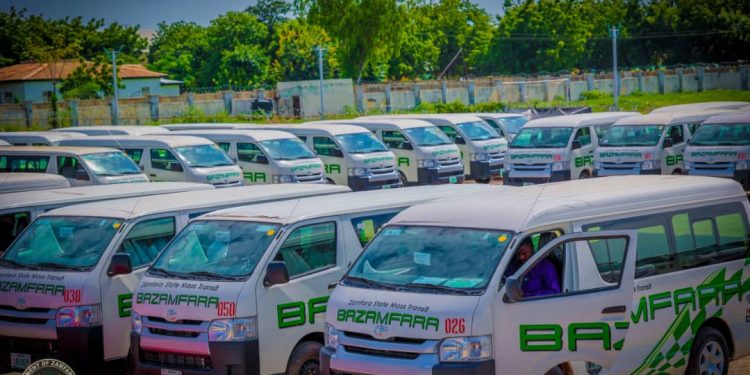Zamfara State has launched a new chapter in its public transportation system with the unveiling of 50 brand-new 18-seater buses, a move Governor Dauda Lawal described as both a promise fulfilled and a legacy project aimed at transforming mobility and boosting economic activity in the state.
The modern, air-conditioned buses unveiled in Gusau are equipped with cushioned interiors, seatbelts, strong suspension for rough roads, and GPS tracking systems for real-time monitoring features designed to enhance passenger comfort, safety, and service efficiency.
Governor Lawal said the launch signals the rebirth of the Zamfara State Transport Company and reflects a deliberate shift from past mismanagement to a new era defined by discipline, accountability, and sustainability. He explained that the delay between the arrival of the buses and their deployment was intentional, allowing the government to first establish proper accountability, monitoring, and management frameworks to prevent the misuse that plagued previous public transport initiatives.
“In the past, vehicles procured with public funds were often diverted for private use or abandoned due to poor maintenance,” he said. “We resolved that, under our watch, such misuse will never be tolerated again. These buses will remain on the roads, serving the people who paid for them with their trust, their taxes, and their hope.”
The state government also invested in human capacity to ensure the system’s long-term success. Staff of the transport company, including drivers, mechanics, ticketing officers, and administrators, received comprehensive training focused on technical skills, ethics, service delivery, and modern transport management practices.
Governor Lawal emphasized the broader impact of a functioning transport system, noting that Zamfara’s central location links it to Sokoto, Kebbi, Katsina, Kaduna, Abuja, Bauchi, and Gombe vital routes for commerce, education, healthcare, and social ties. Reliable public transport, he said, will make it easier for traders to access new markets, students to reach schools, families to stay connected, and civil servants to move efficiently for work.
Calling on citizens to take ownership of the new infrastructure, the governor urged residents to use the buses responsibly and protect them from vandalism. “Public property must not be vandalized, abused, or neglected. A bus scratched, a seat torn, a window broken is not a loss to the government but a loss to us all,” he said. “Just as these buses are public, so must our sense of responsibility be public.”
For small businesses and traders in the state, the improved transport network promises easier movement of goods, broader market access, and reduced logistics costs, vital elements for economic growth and inclusion.










